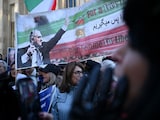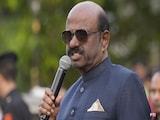Madhya Pradesh Higher Education Minister Inder Singh Parmar, who triggered outrage by calling social reformer Raja Ram Mohan Roy a "British agent", has now issued an apology, saying his statement was a "slip of tongue".
Parmar's remark came during a program in Agar Malwa marking the 150th birth anniversary of tribal freedom icon Birsa Munda, where he claimed Roy acted "on British directions," and that English education in Bengal had created a "vicious cycle" of religious conversion.
"During that time, missionary schools run by the British were the primary means of education, where religious conversion efforts were carried out. Birsa Munda, too, wanted to study, but after understanding the missionary activities happening there, he left the school and joined the movement against British rule," the BJP leader said.
As criticism mounted across political and academic circles, Parmar released a video message on Sunday, saying, "While speaking on the life of Bhagwan Birsa Munda, I accidentally misinterpreted Raja Ram Mohan Roy. I deeply regret this and I apologize."
He said that Raja Ram Mohan Roy was a "renowned" social reformer.
"I personally respect him. The statement slipped out inadvertently," he added.
The apology, however, did little to contain the uproar.
Congress spokesperson Bhupendra Gupta said Parmar's remark was not just factually wrong but "an insult to India's reformist legacy."
"Was the abolition of Sati also some form of British brokerage? Those who were truly close to the British are today calling our reformers agents," he said.
He added that the minister's comments reflect a dangerous trend of rewriting history to fit "ideological narratives."
Historians and academics have strongly refuted these claims, pointing out that Roy's legacy from abolishing Sati to championing women's rights and modern education is widely regarded as foundational to India's social renaissance.
This is not the first time Parmar's statements have stirred controversy. Earlier, he had claimed that India was not discovered by Vasco da Gama but by a merchant named Chandan, saying "we have been taught the wrong history." Addressing a university convocation, he asserted that the official historical narrative had long been distorted.
He also came under scrutiny after his department directed government and private colleges to mandatorily include 88 specific books in their libraries, many of which were authored by individuals linked to the Rashtriya Swayamsevak Sangh (RSS).















